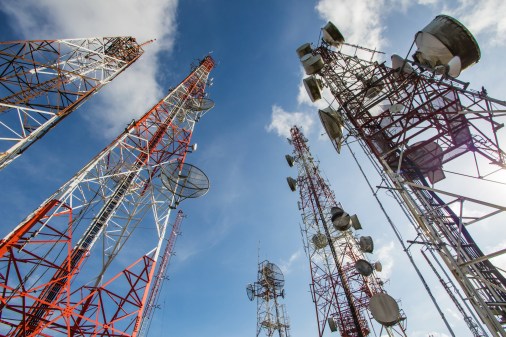Would a CenturyLink-Level 3 merger affect EIS? GSA to wait and see

Just as the General Services Administration lays the groundwork from implementing its new $50 billion telecommunications contract, there’s a possibility it may have to revisit at least a portion of the deal.
Two of the 10 awardees for the Enterprise Infrastructure Solutions contract — CenturyLink and Level 3 Communications — are moving forward with a proposed merger that would create one of the larger network service providers on the market.
The pair negotiated the intended merger in November 2016, won shareholder approval in March and have been racking up approvals from state agencies in an effort to finalize the deal.
As of the Aug. 1 awarding of the EIS contract, the proposed CenturyLink-Level 3 Communications merger had won approval in 23 states and territories — including Virginia, Maryland and the District of Columbia.
The merger still needs approval from the Federal Communications Commission, the Justice Department and other international bodies, but CenturyLink officials said in a statement that they anticipated the deal to be completed by Sept. 30.
What does the move mean for EIS? So far, GSA officials aren’t sure.
The telecommunications contract was negotiated with the companies operating as separate entities and Bill Zielinski, GSA assistant commissioner for category management, said the agency would wait to see how the potential merger develops to gauge its impact.
“While we are aware those entities are undergoing negotiations about potentially merging their services, the only thing upon which we can base the evaluation of the award is what was presented by them as the companies that they constitute today,” he said. “Their plan for if they do have a merger, how do they constitute themselves on the backside of that merger will drive whether it does or does not have an effect.”
Officials at CenturyLink said in an email that the merger shouldn’t alter any elements of the EIS contract, but they added that both companies would examine the services offered to federal agencies once the deal is complete.
“The merger will not impact the terms of the EIS contracts awarded to CenturyLink and Level 3. It’s not unusual in mergers for both parties to have overlapping contract vehicles,” the officials said. “When the merger is complete, there will be a review of the contract portfolios to determine how to best meet the government’s needs within the confines of our respective vehicles.”
Zielinski said the 10 awardees were determined both by their ability to provide core telecommunications and network services but also the geographic availability of those services, with offerers delivering services to a minimum of 25 locations and up to 900 locations.
“We wanted the service providers to be able to provide those services across the entire space,” he said. “There has to be kind of a floor of capability provided across the services and across the geographic location.”
Both companies fit that bill, and will be able to do so if the merger goes through. A joint website CenturyLink and Level 3 detailing the merger said the deal would increase CenturyLink’s high-bandwidth network by 200,000 route miles, including to more than 350 metropolitan areas and across multiple continents.
EIS combines the telecommunications and network services of three prior contracts — Networx; Washington Interagency Telecommunications System 3 for federal entities in Washington, D.C., Virginia and Maryland; and Local Telecommunication Services — into a single vehicle with a five-year base period and two five-year options.






